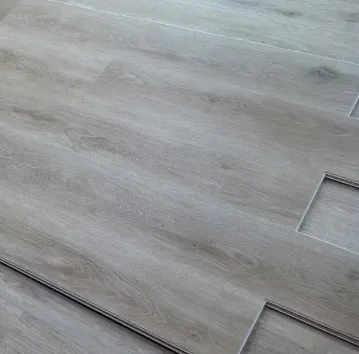The Ultimate Flooring Decision
When it comes to selecting the perfect flooring for your home or office, two popular choices dominate the market: LVT laminate flooring and traditional laminate. Each type of flooring offers its own benefits, but which one is right for you? In this article, we’ll explore LVT laminate flooring price, the advantages of laminate flooring LVT, the durability of LVT laminate flooring, and the option of installing LVT over laminate. By the end, you’ll have all the information you need to make an informed decision about which flooring type best suits your needs.

LVT Laminate Flooring Price: An Investment Worth Making
One of the first things you’ll notice when researching LVT laminate flooring is the difference in price compared to traditional laminate. LVT laminate flooring price tends to be higher because it’s crafted from multiple layers of vinyl, making it incredibly durable and water-resistant. However, while LVT laminate flooring price is higher, the added benefits are well worth the investment.
The high LVT laminate flooring price reflects its superior quality and performance. It can withstand heavy foot traffic, resist moisture, and even endure scratches and stains. Unlike traditional laminate, which is made from wood-based materials, LVT laminate flooring offers a longer lifespan and requires less maintenance, making it an ideal option for high-traffic areas like kitchens, bathrooms, and hallways. With its enhanced durability, LVT laminate flooring proves to be a more cost-effective choice over time despite the higher initial price.
Laminate Flooring LVT: Understanding the Core Differences
When you encounter the term laminate flooring LVT, it’s essential to understand the core differences between LVT laminate flooring and traditional laminate. Both flooring options are designed to mimic the look of hardwood or stone, but laminate flooring LVT is made from a combination of vinyl and other synthetic materials. This composition gives laminate flooring LVT distinct advantages, including water resistance and greater flexibility.
Unlike traditional laminate, which uses a wood-based core, LVT laminate flooring consists of layers of vinyl, including a high-performance wear layer that provides superior durability. The water-resistant properties of laminate flooring LVT make it the perfect option for bathrooms, kitchens, and basements—areas where moisture could damage traditional laminate. Moreover, laminate flooring LVT is softer underfoot and can provide a quieter, more comfortable experience, making it ideal for residential and commercial spaces alike.
LVT Laminate Flooring: Long-Term Durability and Maintenance
When comparing LVT laminate flooring to traditional laminate, one of the most important factors is durability. LVT laminate flooring is designed for long-term performance, with its superior water resistance, scratch resistance, and ability to maintain its appearance for years. Traditional laminate, while durable, tends to wear down faster when exposed to moisture or heavy traffic.
One of the standout features of LVT laminate flooring is its ability to handle moisture and humidity better than traditional laminate. This makes it an excellent choice for areas like bathrooms, kitchens, and basements, where moisture can cause wood-based laminate to warp or swell. Additionally, the advanced wear layer of LVT laminate flooring helps protect against scratches, dents, and stains, which ensures your flooring remains pristine for years with minimal maintenance.
The low-maintenance nature of LVT laminate flooring is another advantage, as it doesn’t require the same level of care and upkeep as other flooring options. Simply regular cleaning and the occasional touch-up is enough to keep LVT laminate flooring looking great for many years, making it a highly practical choice for busy households or commercial spaces.
LVT Over Laminate: Can You Install It?
Another consideration when selecting flooring is whether you can install LVT over laminate. The answer is yes, you can! LVT over laminate is a popular option for homeowners and businesses looking to upgrade their floors without having to remove their existing laminate. Installing LVT over laminate can save both time and money, as you don’t have to tear out old flooring before laying down your new LVT laminate flooring.
When installing LVT over laminate, it's important to ensure that the existing laminate is in good condition. The surface must be clean, dry, and free of any debris to allow the new LVT laminate flooring to adhere properly. While LVT over laminate can be a simple and cost-effective solution, it's always a good idea to consult with a flooring professional to ensure the best installation process.
By opting for LVT over laminate, you can enjoy the benefits of the durable, water-resistant, and stylish LVT laminate flooring without the hassle of complete removal. It’s an excellent choice for homeowners looking for a quick upgrade or a budget-friendly renovation solution.
Making the Right Choice: LVT Laminate Flooring or Traditional Laminate?
Choosing between LVT laminate flooring and traditional laminate comes down to your needs and priorities. If you’re looking for a more durable and water-resistant option, LVT laminate flooring is the clear winner. It offers superior protection against moisture, scratches, and stains, making it ideal for high-traffic areas and spaces prone to humidity. The long-term durability of LVT laminate flooring means fewer repairs or replacements are needed over time, making it a great investment.
However, if you’re on a tighter budget and don’t require the enhanced durability of LVT laminate flooring, traditional laminate may still be a good option. It offers a similar look at a more affordable price, though it may not last as long or perform as well in wet environments. If you're simply looking to add a stylish touch to areas that don’t face heavy moisture or foot traffic, traditional laminate flooring could be the ideal solution.
Ultimately, whether you choose LVT laminate flooring or traditional laminate depends on your specific needs, budget, and the environment in which the flooring will be installed. Both options have their benefits, but for those looking for superior durability and moisture resistance, LVT laminate flooring is hard to beat.




